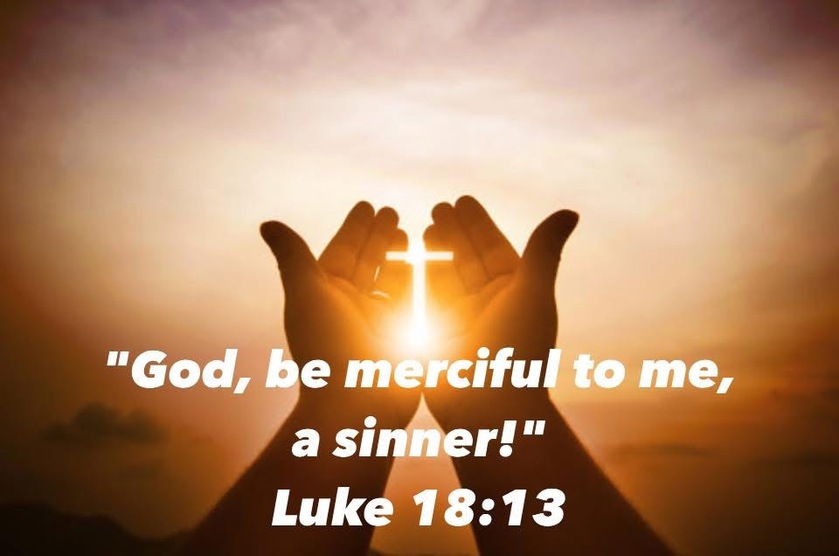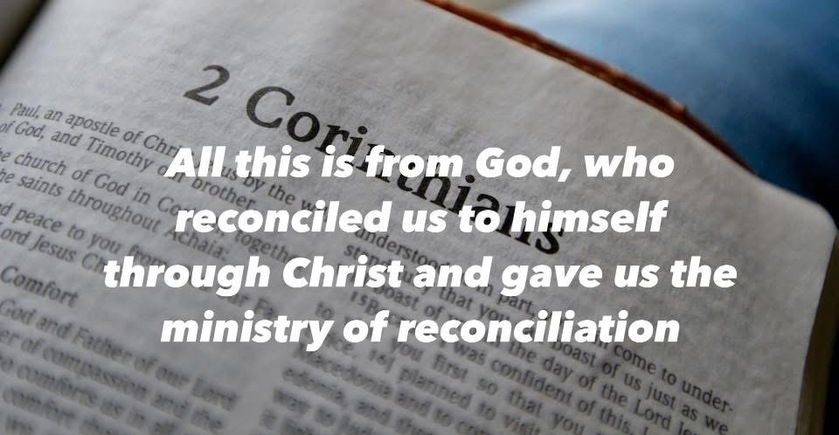Decision And Action: A Call to Repentance
Luke 16:2
"And besides all this, between us and you a great chasm has been fixed, in order that those who would pass from here to you may not be able, and none may cross from there to us.’"
One day, at the end of the thousand-year reign of Christ, death and Hades will give up the dead which are there. And they will stand before the great white throne of God (Revelation 20). Those whose name is not written in the Book of Life will be sent into Gehenna. In Luke 16:19-31, Jesus tells the parable of the rich man and Lazarus. The "great chasm" described in verse 26 illustrates a fixed, unbridgeable divide between the place of torment and Abraham’s bosom. This is our situation today. This separation isn’t just physical but spiritual as well. This account highlights the irreversible nature of one’s eternal destiny after death. There is consciousness there, remembrance. And that feature torments those who are there. Probably why we hear a lot about their grinding and gnashing of teeth.
This theme of finality carries forward to Revelation 20:11-15, where the great white throne judgment occurs after Christ’s millennial reign. Death and Hades surrender their dead, and all its residents stand before God. The Book of Life is opened, and those not found in it are cast into the lake of fire. The "great chasm" of Luke 16 foreshadows this ultimate judgment, where the opportunity for mercy has ended, and the divide between the saved and the lost is eternally set. It's all very grim and final. No second chances in a purgatory state. It's urgent and it rings with justice and judgment.
But it's also about hope.
Hope you say?
Where?
Well...what about the Book of Life!
Let's back up for just a moment. The rich man’s torment isn’t just physical, he’s conscious, he remembers his life, his family, his missed opportunities. That awareness amplifies his anguish, a haunting reminder that choices in this life echo into eternity. It’s a sobering thought for us today, the divide is real, and the time to cross it is NOW, before death seals our fate.
And then Jesus steps on the scene.
The Book of Life is opened, a ledger of grace, not merit, and those not inscribed in it face the lake of fire, the final Gehenna. The Book of life is not just a list; it’s a promise.
Revelation 21:27 calls it the "Lamb’s Book of Life," pointing us to Jesus, the Lamb who was slain (Revelation 5:12). This isn’t a book we write ourselves into by our many good deeds, or by other's deeds in our steed, it’s a gift of grace, inscribed by the One who died to redeem us. Redemption comes to those who repent. If you're in need of a work there it is, surrender yourself to Jesus. I can't think of one soul that is saved without repentance. All the apostles and even Jesus' mother had to repent. And even the thief on the cross repented in his final moments (Luke 23:42-43).
Repentance is the doorway to grace. the turning of the heart, the acknowledgment of our sin, and the embrace of His mercy. It opens up the door to our hope.
The apostle Peter calls us to,
"repent and be baptized" for the forgiveness of sins (Acts 2:38).
And Jesus Himself says,
"Unless you repent, you will all likewise perish" (Luke 13:3).
He was speaking to ALL his followers at the time.
The chasm is fixed, but the cross spans it, today, for those who turn to Him.
So, here’s the question for you today:
Is your name in the Lamb’s Book of life?
The divide is real, the judgment is coming, but the grace of Jesus stands ready now. Repent, surrender, and find your place in that promise, do it now before the chasm becomes eternal.
Repentance, at its core, is a turning away from sin and a turning toward God, often marked by a change of heart, mind, and behavior. Recently we read about The Prodigal Son (Luke 15:11-32). The younger son demands his inheritance, squanders it in reckless living, and hits rock bottom feeding the pigs who eat better than him. In verse 17, he "comes to himself," realizing his sin. He says, "I will arise and go to my father, and I will say to him, ‘Father, I have sinned against heaven and before you’" (v. 18).
Decision and Action.
Think about David after his sin with Bathsheba (2 Samuel 11-12; Psalm 51). King David commits adultery with Bathsheba and orchestrates her husband’s death. When confronted by Nathan the prophet, David doesn’t deflect or deny, he repents.
In 2 Samuel 12:13, he says,
"I have sinned against the Lord."
Psalm 51:10 reveals the depth of his brokenness:
"Create in me a clean heart, O God, and renew a right spirit within me".
His confession, and heartfelt sorrow, are a plea for renewal, a turning away from himself and a turning back into God’s mercy.
Coming soon in our ongoing study commentary we meet Zacchaeus the Tax Collector in (Luke 19:1-10). Zacchaeus is a wealthy but dishonest tax collector. He climbs a Sycamore tree to see Jesus. When Jesus calls him down and enters his home, something shifts.
Luke 19:8 Zacchaeus declares,
"Behold, Lord, half of my goods I give to the poor. And if I have defrauded anyone of anything, I restore it fourfold".
His repentance isn’t just words for him, it became a radical change in his thinking and behavior, he's making amends for his greed, he's focused on restoring his legacy.
And Jesus affirms him,
Luke 19:9
"Today salvation has come to this house".
These examples show repentance as both internal (a change of heart) and external (a change in action), always tied to faith in God’s grace. Repentance and faith are like two sides of the same coin in Scripture. Repentance is the turning from sin, while faith is the turning to God, trusting in His grace and provision. And that faith is not something you can manufacture through religious fervor. The Bible points to faith as a gift that God enables, not something we conjure up alone.
Take Ephesians 2:8-9:
"For by grace you have been saved through faith. And this is not your own doing; it is the gift of God, not a result of works, so that no one may boast."
Faith here is the channel through which grace flows, and it’s not self-generated, it’s a gift given by God. And yet, we’re not passive either; we respond to His call. A call to action.
Jesus says in John 6:44,
"No one can come to me unless the Father who sent me draws him."
So, faith involves our trust, but it’s sparked and sustained by God’s initiative. The Prodigal Son doesn’t "generate faith" in a vacuum. His return is prompted by his realizing his father’s goodness compared to his misery (Luke 15:17). That memory of his father's grace stirs him to act. Faith emerges as he trusts his father will receive him, and he’s right. Likewise, with Zacchaeus, his faith isn’t self-made either. Jesus seeks him out, calling him by name (Luke 19:5). That encounter ignites Zacchaeus’s response, and repentance with faith flowing together as he trusts Jesus and decides to change his life.
Conclusion:
We don’t bootstrap belief; we hear His word, we feel His pull, and we turn to Him.
Romans 10:17 says,
"Faith comes from hearing, and hearing through the word of Christ."
The rich man in Luke 16 missed this, he ignored the needs of Lazarus and he ignored the Scriptures (v. 31). But those who repent, like the thief on the cross, trust the One they see or hear about, even faintly.
Friends,
The chasm is fixed, and judgment looms, but the Lamb’s Book of Life offers hope. Choose wisely. Book it now or take a risk that tomorrow your life is over. Repentance is how we turn, and faith is how we trust. We don’t have to generate it ourselves; God draws us through His Son. Surrender isn’t about mustering up faith, it’s about taking the hand that's already reaching out to you.
Will you take it today?



















